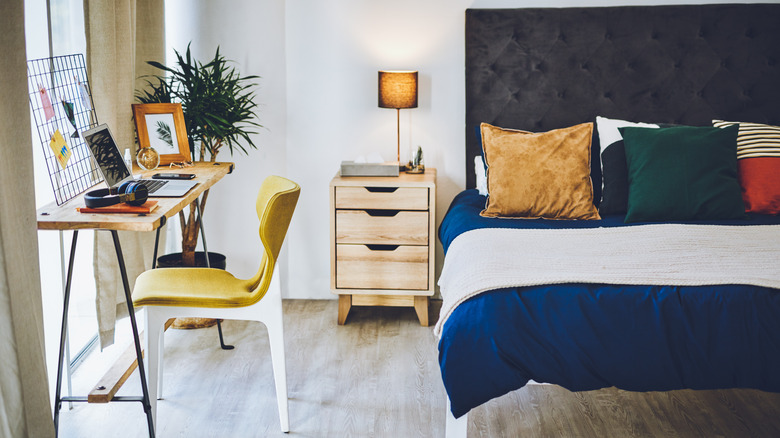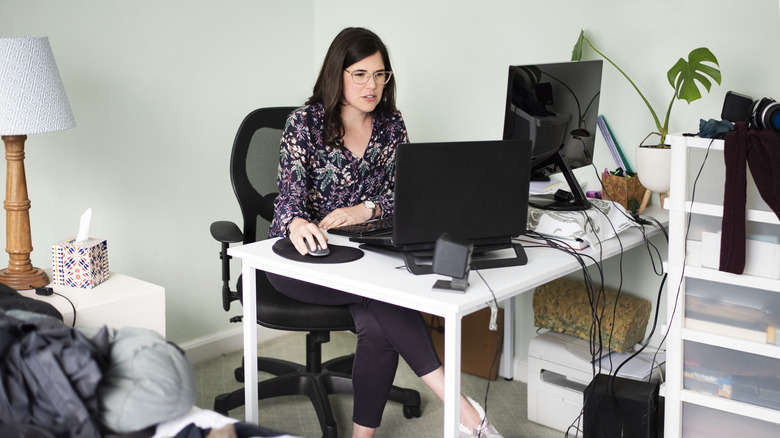Why Putting Your Home Office In The Bedroom Is A Bad Idea, According To David Bromstad
Today, the lines between professional and personal life are becoming blurred, and the rise of home offices is proof of this shift. In fact, an estimated 32.6 million Americans will be remote workers by 2025 (via Forbes). Although carving out a workspace within the sanctuary of your home seems like a practical choice, renowned interior designer David Bromstad cautions against the trend of situating a home office within a bedroom. "I just don't love that because it's like you wake up to stress," explains Bromstad while hosting the HGTV show "My Lottery Dream Home" (via Realtor.com).
He emphasizes designing spaces to foster productivity and tranquility but doing so separately. David Bromstad argues that the bedroom should remain a haven of rest, not a hub of activity. When laptops and office supplies begin to encroach upon the space, the bedroom's primary purpose — to serve as a retreat for relaxation and sleep — is compromised. The psychological impact is potent; the association your brain forms between the bedroom and work can increase stress levels and difficulty unwinding or falling asleep, as per the Cleveland Clinic.
Moreover, the aesthetic imbalance cannot be overlooked. Home offices often come with utilitarian items (printers, cords, files) that can clash with the serene decor typically associated with a bedroom. Feng Shui confirms this. A desk in the bedroom would disrupt the calming Yin energy, which is meant for rest, with the Yang energy of work and activity. This will cause a disproportion in the energy of your space.
Possible solutions to the bedroom office dilemma
Ultimately, Bromstad suggests avoiding the office-in-bedroom-combo. In the Season 15 episode "Living Large in Lubbock," David Bromstad was really keen on the setup of a separate ergonomic office nook. "I love this little setup right before the main bedroom," he says via Realtor.com. From a practical standpoint, even a small division like this is critical when working from home. Indeed, when a bedroom doubles as an office, it can be challenging to "leave work." The blurred lines can also lead to disruptions from other household members who may not recognize the bedroom as a workplace. Having an office, even just right outside the bedroom, can make all the difference.
However, due to financial or space constraints, a lot of people have no other choice but to create an office space in the bedroom. As with any interior design project, David Bromstad encourages homeowners to find creative solutions — perhaps, converting a closet into a compact office or using a room divider. Looking to Feng Shui, positioning your desk in a commanding position so that you can see the door of your bedroom and splitting your room into a work and rest zone can also make a big difference. This will ensure that the peace of the bedroom remains undisturbed and that work can still get done. With this degree of separation, you can achieve a healthier work-life balance, and Bromstad's vision for spaces that serve their purpose and, ultimately, make you happy.

